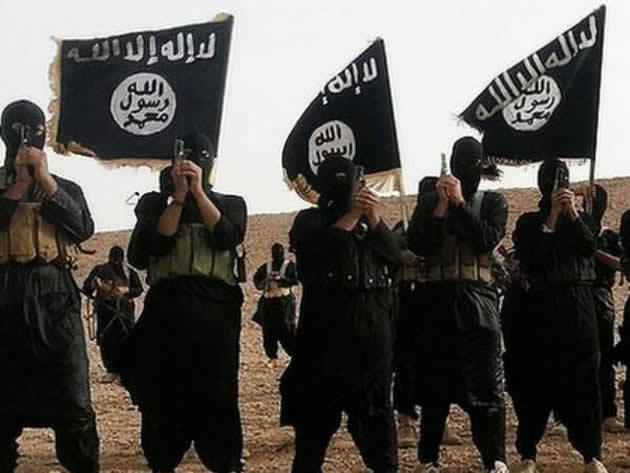Rethinking Ataturk’s 6 arrows,Erdogan’s policy dilemma

Sharon Hofisi Correspondent
Ataturk nationalism is a form of contextualised democracy that suited Turkish needs. A working definition for political democracy is aptly summed up in the political mantra “power from the people, by the people, for the people” whose coinage is largely attributed to former American President Abraham Lincoln. The operating environment in a country shapes the form of democracy in light of the policies pursued by that country.
National policy (domestic or foreign) is formulated and implemented taking into consideration domestic and external factors that threaten or encourage the existence of a nation as a stable democracy.
Different strands of democracy abound and include constitutional, illiberal, liberal or contextualised forms as in the case of Turkey’s Ataturk nationalism and Israel’s fortress democracy.
Contextualised forms usually produce positive or worrying effects for the country and other nations that are so affected by them. For instance, Turkey’s secularism democratic aspect positively makes it a popular and functioning democracy when dealing with religious fundamentalists such as ISIS.
Turkey can afford to avoid unpalatable political labels such as a “pariah, failed, authoritarian/totalitarian” state and a “fragile democracy”. It also puts it ahead of countries like Israel whose fortress democracy has been exercised much to the chagrin of the Arab Union and other countries that support Palestine’s independence.
In contradistinction, Ataturk influence has been criticised on account of Turkish involvements that have led to the disregard of the sanctity of human life, and the respect of sovereignty of other states like Syria and Israel.
The personal liberties of Turkish citizens (about 60 000 civil servants recently imprisoned) is a startling statistical figure which does not make interesting reading for a perceived functioning democracy.
The involvements may be understood from the “peace at home, peace abroad” foreign policy goal which can be used in times of political turmoil to show that absence of peace at home may influence Turkey’s policy when there is absence of peace abroad.
The threats to the life of the current Turkish regime can best be explained by developments that also affect Turkey especially the seemingly incessant Syrian Crisis which started some five years ago. Turkey has to deal with allegations of fomenting trouble against Assad and threatening Syria’s sovereignty under the guise of dealing with ISIS threats to Turkish sovereignty abroad.
The assault on Turkish citizens, especially children, near the border with Syria has been used as an obvious justification for intervention in Syrian affairs. This is because Ataturk form of foreign policy focuses on the need to preserve the independence and integrity of Turkey as a nation. If ISIS, Syrian and other forces interfere with sovereignty, Turkey may even invoke the provisions of the United Nations Charter to justify its involvement as part of its self-defence.
Because Ataturk democracy was a result of the Europeanisation of Turkish democracy by former Turkish President Ataturk whose Kermalism ideology was borrowed from constitutions of Switzerland, France and Italy.
It was however transformed to suit Turkish needs and its involvement in foreign intrastate wars becomes legitimised in military history if one considers President Ataturk’s wars beyond Turkey such as Libya, Yemen, and Albania when he was still a military figure in the Turkey.
Turkey’s interventionist tendencies in Syria, can reasonably be historically explained. The way the Erdogan government deals with ISIS which wants to establish a Muslim Caliphate has to be analysed in ways that appeal to populism and secularisation.
Populism stresses that all citizens are Turks and if Turkish citizens join ISIS and subscribe to religious extremism, then they have to be regarded as threats to Turkish Independence. Ataturk’s six arrows were rooted in republicanism which vested sovereignty in the nation and not individuals.
It was built on the need to avoid returning to the period of the First Caliphate by emphasising the need to maintain Turkish independence and thwarting intra or interstate conflicts which threaten this independence at all costs.
Ataturk emphasised among other freedoms, “freedom in all matters. Being deprived of independence in any of these is equivalent to the nation and country being deprived of all its independence”.
ISIS is to modern Turkey one such matter and the impact of the Syrian Civil War is another. Turkey’s response to these cannot be divorced from Ataturk’s six pillar ideology: (republicanism) realism (explained above together with populism), pragmatic reformism, populism, secularism, etatism (statism) and nationalism.
The first four arrows best explain Turkey’s perception of global and regional power politics that cut ties with anachronistic history whereas the last two explain Turkey’s needs to safeguard its own national needs.
Because the six arrows were referred to as “fundamental and unchanging principles”, they are still influential when dealing with political interventions that involve ancient foes such as Entente powers, especially Russia’s presence in Syria (Russia was once accused by Turkey of colluding with Armenia in delaying Turkish Independence).
Secularism, or laiklik in Turkish, borrowed from France’s laicite saw the abolishment of the Caliphate and ended the influence of religion on state affairs. It has defined the relations between Erdogan’s AKP party and the Hizmet movement.
Statism placed the State at the centre of spearheading national development and nationalism and reformism were legitimized by the need to maintain national independence. The Syrian crisis has to be withstood in the context of Turkey’s near civil war in the 1970s and the need to curb rampant coups, some of which wanted to threaten secularization.
Modern threats such as ISIS, itself a modern caliphate-oriented grouping which has Islamic characteristics like Turkey, have to be dealt with in a secularised way, so that non-Muslim nations can continue to pragmatically engage with Turkey in ending ISIS’ menace in Middle Eastern countries such as Iraq, Yemen, and Syria.
Russia has of late been involved in the Syrian crisis, largely in support of the Assad regime. Inasmuch as the Assad regime fights the Syrian opposition and ISIS, Turkey’s involvement is historically explained, as its involvement became clear after Russia’s intervention.
Turkey, through pragmatism, realism and populism can now uses the ISIS excuse to assert herself as a strong actor in the Syrian conundrum. This is notwithstanding the fact that it used to adopt a non-interventionist policy towards Syria.
Religious extremism is avoided because Article 24 of the 1982 Turkish Constitution has restrictive application on freedom of conscience, personal belief and conviction as the State is given unfettered power to monitor and control of how one exercises the freedoms or is taught in school about those freedoms.
Added to this is the popular 28 Subat declaration of 2007 that affirmed the need to subscribe to Ataturk’s secularism and reduce the influence of religious reaction through fundamentalism.
Statistics show the internationalisation of ISIS’ influence occasioned by its deadliest attacks on Turkish territory such as the Istanbul Airport assault that killed 42 people (include 23 Turks, Saudis, Iranians, Iraqis, Jordanians, Tunisians, Uzbeks and Ukrainians), left 250 people injured and lead to declaration of a day of national mourning apart from crippling Turkey’s economy. Turkey’s response to ISIS thus transcends religious association and resonates with fundamental nationalism. Conventional wisdom judges nationalism in light of ethno-linguistic ties, citizenship and common or shared historical experiences.
ISIS’s zealotry which seeks the establishment of a caliphate through the sword and other radical ways such as using captured children as bait, mass public decapitations, and sworn allegiance to Islamism is openly contrary to the need to limit the influence of religion on Turkey’s national affairs.
ISIS has to be contained judging from its influence on Islamic groupings like Boko Haram in Nigeria which have now rebranded into ISWAP or the Islamic State of the West African Province.
ISIS in Syria and Iraq has been supported across the globe and claims to be behind attacks in some democracies such as France. Its influence on nations far removed from Iraq and Syria informs Turkey, which shares the border with Syria to guard against ISIS influence. Outside Turkey, people widely believed to be of Turkish origins such as the Kurds have been on the receiving end of ISIS’ menace.
Ataturk’s influence may be there to stand albeit the attempt by the Erdogan government to respect Islamism through his party’s Hedef 2023. Dr Can Erimtam in an article titled “The end of “Secular Turkey” or Ottoman’s Re-emergent” written in 2015, provides some useful insights on Erdogan’s inclination to the Caliphate system and the need to reduce the influence of European or Western democracy.
Political factors have however changed remarkably since his January 2015 article and much telling is Erdogan’s imprisonment of about 60 000 citizens which has already been met with criticism from Western nations.
The gruesome attacks on November 13 last year in which 130 people died in Paris and the Bastille Day attacks in Nice, France in which 84 people were killed has seen the government extending the State of Emergency by three months in response to the attacks and Erdogan cannot afford to adopt a wait and see attitude on the effect of Islamism.
ISIS’ attacks in Turkey have been referred to above. Added to this is the effort from Western democracies such as the USA in defending Kurds in Iraq from ISIS assaults and Erdogan cannot pay a blind eye to this.
The Istanbul assault, which followed exactly an hour after iftar, or the meal ending the Ramadan fast, has already been described by Letsch and Graham-Harrison (2016) as a price paid for Erdogan’s wilful blindness to ISIS threat and allowing religious conviction to interfere with state affairs leave him to test his own medicine.
Erdogan blamed the attack on ISIS and his approach was similar to America’s counterterrorism pundits such as John Brendan basing on the modus operandi used at Istanbul which was similar to that used in the Brussels and Paris attacks.
Add the above to the death of German tourists and Israeli citizens through suicide bombs attributed to ISIS. In a pragmatic attempt to appease Israel, Erdogan signed the reconciliation pact with Israel as a way of demonstrating that Turkey unites with other nations against global terrorism. Israel and France have been targeted by truck terrorism recently and Erdogan is forced to urgently abandon his domestic policy.
There is overwhelming evidence that Erdogan is not safe from internal influences. It started with ISIS’ breach of Turkish security, and strikingly, Turkish military personnel have recently attempted a coup in Istanbul and the capital Ankara.
Where would Erdogan and his caliphate ideas be had the coup been successful?
Paris, Brussels and other affected countries are pursuing a more intelligent form of security intelligence following Paris and Nice and Brussels attacks.
Even Russia’s Putin played Nice and sent condolences to France after the attack on Nice that left about 80 civilians dead.
The coup attempt is a warning to Mr Erdogan that Istanbul is Ataturk and Ankara, representing the integrity of Turkey should for now, remain Ataturk-oriented as a return to the Caliphate system can be a blundering move that will see Erdogan marching headlong into political oblivion.
Feedback: [email protected] <mailto:[email protected]>









Comments